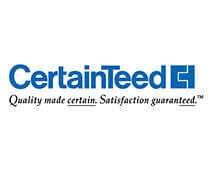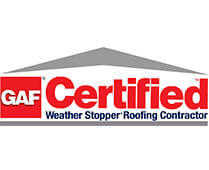Curious about the cost of replacing your roof? Understanding the expenses involved in a roof replacement is crucial for homeowners. Whether it’s due to wear and tear or a desire to upgrade, knowing what factors influence the cost can help you plan effectively. In this post, we delve into the intricacies of roof replacement costs, shedding light on key considerations that impact your budget and home. By exploring these details, you’ll be better equipped to make informed decisions.
Understanding Roof Replacement
Replacement vs Repair
Roof replacement involves installing a new roof, while repair addresses specific damages. Full roof replacement is necessary when the roof is extensively damaged beyond repair. Partial roof replacement focuses on fixing only the damaged sections, which can be cost-effective in the short term.
To determine the best option, consider factors like long-term cost-effectiveness. While repairs may seem cheaper initially, frequent fixes can add up over time. Assessing the age and condition of your current roof is crucial in deciding between full or partial replacement.
Signs for New Roof
Signs indicating the need for a new roof include leaks, missing shingles, or visible damage on your existing one. Interior water damage or mold growth are red flags that suggest underlying issues requiring attention. An aging roof with worn-out materials may warrant a full replacement.
When you notice these signs, it’s essential to act promptly to repair and avoid further cost damage to your home’s structure and interior. Ignoring these indicators could lead to more extensive and costly repairs down the line.
DIY vs Professional
Deciding between DIY and professional services depends on various factors such as project complexity, personal expertise, and cost. Simple repairs might be manageable for a DIY enthusiast, but replacing an entire roof requires specialized skills and equipment typically possessed by professionals.
Safety risks associated with working at heights also play a significant role in this decision-making process. Hiring experienced roofing professionals ensures not only quality work but also minimizes potential accidents during installation or repairs.
Cost Factors Overview
Labor Costs in Alberta Canada
Labor costs for roof replacement in Alberta, Canada are influenced by various factors such as roof size, complexity, and location. To get an accurate estimate, it’s crucial to obtain multiple quotes from different contractors. Comparing these quotes allows homeowners to assess both the costs and services offered. When selecting a contractor, consider their reputation and experience to ensure quality workmanship.
Material Costs
When considering material costs for roof replacement, homeowners can choose from options like asphalt shingles, metal roofing, or tile. Each material comes with its own set of costs based on factors such as durability, maintenance requirements, and energy efficiency. To make an informed decision, compare prices offered by different suppliers and contractors to secure the best deal on materials.
Additional Factors
Roof Removal
Before installing a new roof, understanding the process of removing the existing one is essential. This includes factoring in disposal costs for old roofing materials and debris removal. Hiring professionals experienced in roof removal ensures a smooth transition between the old and new roofs.
Repairs Needed
Identifying specific repairs needed before replacing the entire roof is crucial to maintaining structural integrity. Common issues like damaged flashing, rotting wood, or sagging areas should be addressed promptly to prevent further damage. Consulting with a roofing expert helps determine the extent of repairs required.
Special Features
Homeowners looking to incorporate special features like skylights, solar panels, or green roofs into their new roof should consider how these additions impact overall cost. Understanding both the benefits and drawbacks of special features is key when making this decision. Seeking advice from professionals regarding installation procedures and maintenance requirements is highly recommended.
Roofing Materials Explained
Material Types
When considering roofing materials, it’s crucial to understand that a significant portion of your roof replacement costs, about 40% to 50%, is allocated towards these materials. The remaining cost factors include labor expenses, making up to 60% of the total price. Different material options such as asphalt, metal, wood, or slate vary in terms of cost and durability.
To make an informed decision, compare the costs and longevity of each material type. Take into account your home’s architectural style and the local climate when selecting the most suitable roofing material. For instance, asphalt shingles are budget-friendly but may require more frequent maintenance compared to durable slate roofs.
Consider consulting with roofing professionals to assess which material aligns best with your needs and budget constraints. By evaluating both upfront costs and long-term benefits, you can ensure a successful roof replacement project that enhances your home’s aesthetics and functionality.
Calculating Square Footage
Measurement Techniques
Learn about various measurement techniques to accurately determine the size and dimensions of your roof. Understand terms like squares, pitch, and slope for precise calculations. Consulting with professionals ensures accurate measurements for estimating costs.
When measuring your roof, knowing the concept of squares is crucial. The term “square” refers to a 10×10 feet area or 100 square feet. Understanding the pitch (steepness) and slope (inclination) of your roof aids in accurate measurements.
Consulting with roofing professionals can provide valuable insights into measuring techniques. They can accurately assess your roof’s square footage, considering all angles and complexities.
Cost Per Square Foot
Calculate the cost per square foot by dividing the total cost of materials and installation by the total square footage of your roof. This calculation helps estimate the overall project cost accurately.
In addition to roofing materials, factor in additional costs such as underlayment, flashing, or ventilation systems when calculating expenses. These extra costs contribute significantly to the total project budget.
Obtain quotes from multiple contractors based on the square footage of your roof. Comparing these quotes allows you to gauge pricing differences and choose a contractor that fits your budget requirements effectively.
Roof Pitch and Costs
Pitch Importance
Roof pitch plays a crucial role in determining drainage, insulation effectiveness, and the suitability of roofing materials. When choosing materials, consider your roof’s pitch to ensure proper water runoff and snow shedding. To optimize these factors, seek guidance from professionals familiar with local climate conditions.
Pitch Types
Various roof pitch types such as flat, low-slope, or steep roofs offer distinct advantages based on water runoff and attic space considerations. Understanding the impact of pitch on snow accumulation is vital for maintaining a functional roof system. Professional advice can help you select the most appropriate pitch type for your home.
Full vs Partial Replacement
Decision Factors
When deciding between full and partial roof replacement, evaluate key factors such as budget, climate, aesthetics, and durability. Consider the long-term value of different roofing materials and their maintenance requirements. Consulting with professionals can help weigh the pros and cons effectively.
Roof pitch plays a crucial role in determining the type of replacement needed. Steeper pitches often require full replacement due to water runoff issues, while lower pitches may benefit from partial replacements that target specific damaged areas. Climate also influences this decision; areas prone to extreme weather conditions might necessitate full replacements for better protection.
Aesthetics are another essential factor to consider when choosing between full or partial replacement. Matching the new roof with the overall look of your home enhances its curb appeal and increases property value. Durability is equally vital; selecting high-quality materials ensures longevity and reduces future repair costs.
Cost Implications
Understanding the cost implications of various choices is crucial in planning your roof replacement project effectively. Opting for premium materials, special features, or complex designs can significantly impact overall costs. Balancing quality with affordability is key to achieving a satisfactory outcome within budget constraints.
In addition to material costs, factor in other expenses like permits, warranties, and unforeseen repairs when estimating total project costs accurately. These additional costs can quickly add up if not considered beforehand. Discussing cost-saving strategies with contractors early on can help you make informed decisions without compromising on quality or safety.
Considering all these aspects before making a decision ensures that you choose the most suitable option for your specific needs while staying within budget constraints.
Cleanup and Disposal
Cleanup Costs
When replacing your roof, it’s crucial to factor in cleanup costs for removing old roofing materials, debris, and waste. These expenses typically include disposal fees, labor costs for cleaning up post-installation mess, and equipment rentals if needed. Make sure to discuss the cleanup responsibilities with contractors beforehand to ensure a thorough and efficient process.
Considerations for disposal fees, labor expenses, and equipment rentals are essential when calculating the overall budget for your roof replacement project. By understanding these costs upfront, you can avoid any surprises during the cleanup phase after installation is complete.
Environmental Considerations
Exploring environmentally friendly roofing options such as recycled materials, green roofs, or solar panels can be beneficial both environmentally and economically. These choices not only contribute to sustainability but also enhance energy efficiency while reducing environmental impact.
When considering different roofing materials, it’s important to consult with experts who specialize in eco-conscious solutions that align with your values. By opting for sustainable roofing options like green roofs or solar panels, you can significantly reduce your carbon footprint while enjoying long-term cost savings on energy bills.
Warranty and Insurance Insights
Warranty Types
Roof replacement projects often come with various warranty options. These warranties can be provided by both manufacturers and contractors. It’s crucial to understand the differences between them. Manufacturers typically offer material warranties, which cover defects in the roofing materials themselves. On the other hand, contractor warranties focus on installation workmanship.
When comparing warranty coverage, pay attention to duration – some may last for 20 years or more, while others might only cover a few years. Exclusions are also essential to consider; certain factors like extreme weather conditions or improper maintenance could void your warranty. To ensure you make an informed decision, discuss these warranty details with professionals before proceeding with your roof replacement project.
Insurance Coverage
Before embarking on a roof replacement journey, it’s wise to review your homeowner’s insurance policy thoroughly. Understand what aspects of roof replacement or repairs are covered under your current policy. In addition to standard coverage, you may want to explore additional insurance options for enhanced protection.
Additional insurance can safeguard you against unexpected events such as storm damage, leaks, or other issues that may arise post-replacement. When considering additional coverage, consult with your insurance providers directly. Seek clarity on coverage limits so that you’re aware of any potential out-of-pocket expenses in case of a claim.
-
Prospective homeowners should note: Some insurers offer discounts for impact-resistant roofs.
-
Keep in mind: Regular maintenance is key to preserving warranty validity and ensuring smooth insurance claims processing.
Making the Right Choice
Professional Advice
Roof replacement can be a significant investment, so it’s crucial to seek advice from roofing professionals. They can guide you on the best materials and design options tailored to your needs. Discussing concerns, preferences, and budget constraints with experienced contractors is essential for receiving tailored recommendations.
Scheduling consultations with multiple experts allows you to gather diverse perspectives. This enables you to make an informed decision based on a comprehensive understanding of the available options. By engaging with professionals, you can ensure that your new roof meets the highest standards in terms of durability and aesthetics.
Budget Planning
When planning for a roof replacement, creating a detailed budget plan is key. This should include costs for materials, labor, permits, and any additional expenses that may arise during the process. Allocating funds for unexpected repairs or upgrades ensures that you are prepared for any equity changes needed along the way.
Consulting with financial advisors or contractors can help you develop a realistic budget aligned with your financial goals. They can assist in prioritizing expenses and making strategic decisions to optimize your home improvement project’s financial aspects. A well-thought-out budget plan minimizes surprises and ensures a smooth renovation process.
Closing Thoughts
Now that you have a solid grasp of roof replacement costs, materials, and factors influencing the overall expense, you are well-equipped to make an informed decision. Consider all the aspects we’ve covered and assess what aligns best with your needs and budget. Remember, investing in quality materials and professional installation can save you money in the long run by ensuring durability and longevity for your roof.
Take your time to evaluate your options carefully, obtain multiple quotes from reputable contractors, and don’t hesitate to ask questions. Your roof is a crucial component of your home’s structure, so making the right choice now will pay off in the future. By being proactive and diligent in your approach to roof replacement, you can secure a safe and reliable shelter for you and your family.
Frequently Asked Questions
What are the key factors that influence roofing replacement costs, such as roofing options, roofing contractors, metal roofs, and roofing squares?
The main factors affecting roof replacement costs include materials used, square footage, roof pitch, full or partial replacement needed, and any additional services like cleanup and disposal.
How can I calculate the square footage of my roof for a more accurate cost estimate?
To calculate your roof’s square footage accurately, measure the length and width of each plane on your roof (including dormers) and multiply these measurements to get the area. Add all areas together for total square footage.
Is a full or partial roof replacement usually more cost-effective?
In most cases, a full roof replacement is more cost-effective in the long run. While partial replacements may seem cheaper initially, they can lead to further issues down the line due to mismatched materials or differing levels of wear.
What warranties should I look for when getting a new roof installed, including replacement cost, repair, price, and work?
Look for warranties on both materials and workmanship. A good warranty should cover defects in materials and protect against improper installation. Check if your contractor offers any insurance coverage during installation.
How do different roofing materials impact overall replacement costs?
Roofing material prices vary significantly; asphalt shingles are generally more affordable than metal or slate options. Consider longevity as well – while initial costs may differ, durable materials might save money over time with fewer repairs needed.
Not what you were looking for? Safe Roofing also offers the following services:
Roof Replacement
Roof Repair
Roof Ventilation
Solar Panel installation
Gutter Installation
Safe Roofing’s Certifications and Qualifications
Manufacturer Certification: IKO (preferred installer)
Building Products of Canada Corp.
GAF Certified Roofer
CertainTeed
Euroshield Certified






